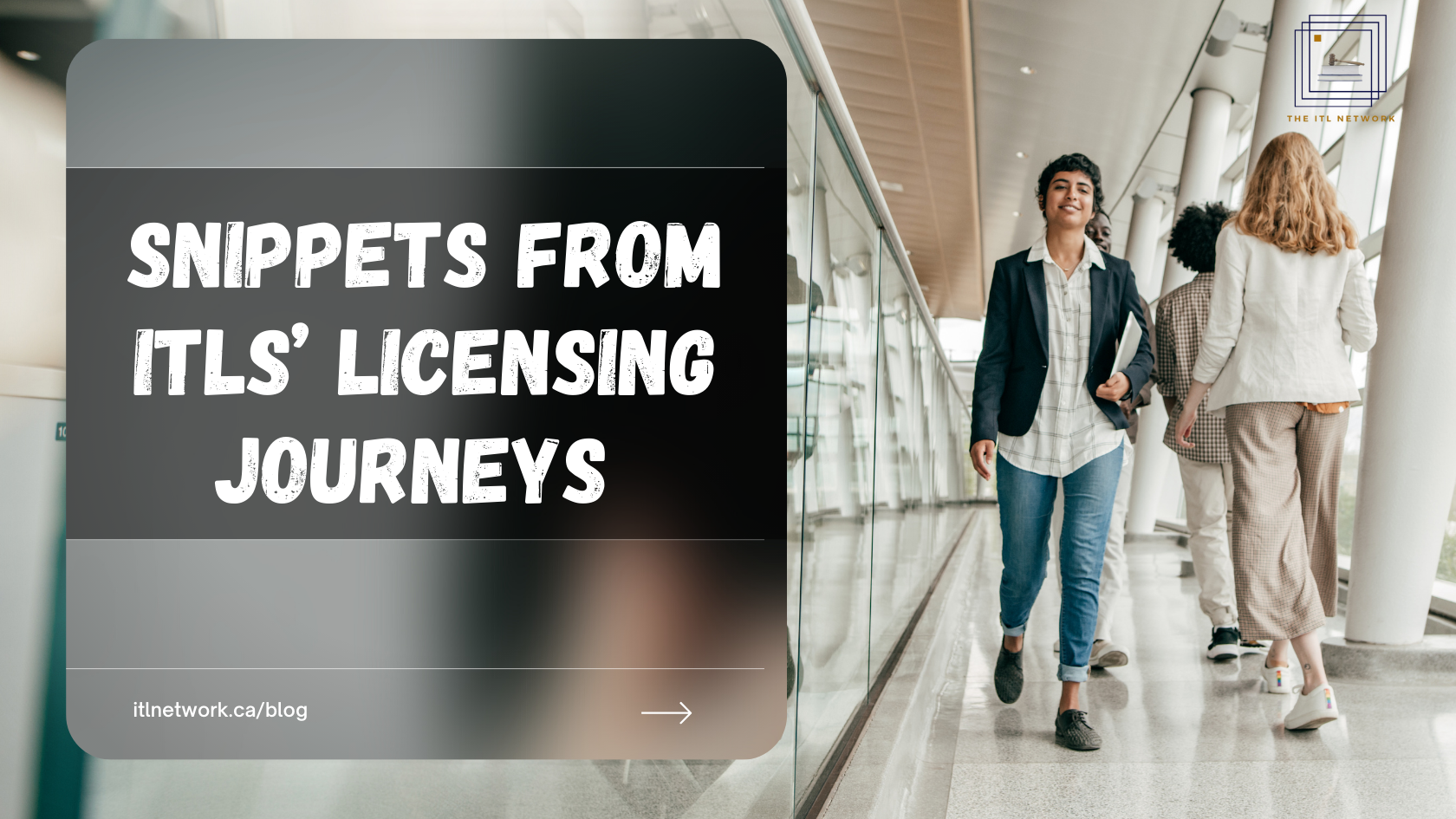
Launching a legal career as an internationally-trained lawyer in Canada usually begins with an undergraduate or Master of Laws program, taking the NCA exams independently or doubling with a school program that offers NCA courses.
Many ITLs are unsure of which path to take to begin this journey, which is why in today’s post, we share highlights of our conversations with three (3) ITLs who have either completed their NCAs, acquired an LL.M. degree, or both!
Joan Michael’s experience:
Can you please briefly introduce yourself?
“My name is Joan Michaels, and I have a Bachelor of Laws degree from the University of Ghana and a Master of Laws from Harvard Law School, focusing on corporate and commercial transactions. I was called to the Bar in Ghana in 2017 and currently, I am articling with a general practice firm in Calgary. My work is mainly on business law, commercial dispute resolution and, to a lesser extent, Wills and Estates Planning and Litigation, including Adult Guardianship and Trusteeship matters.
How was your NCA experience?
“My NCA journey was smooth sailing, mainly because the exams were being held online, so I registered and wrote the exams while I was still in Ghana. I completed my exams within a year and passed each of my five papers in one attempt. I paced myself because I had a day job. I also joined the NCA Online Teacher prep program and had some excellent study group sessions. “
How many courses were you assigned?
“I was assigned the five compulsory subjects – Constitutional Law, Administrative Law, Foundations of Canadian Law, Criminal Law, and Professional Responsibility. “
What was the most challenging part of the NCAs?
“The most challenging part was the volume of materials that had to be covered. I bought all the recommended textbooks, and they were voluminous. One has to quickly acquire and apply the skill of skimming and identifying the essential principles to pay more attention to. “
What part of the NCAs did you like?
“The NCA is a holistic program, and I particularly enjoyed Constitutional Law. I found the Canadian jurisprudence on reasonable limits on rights and freedoms to be innovative and thoughtfu.”
What advice would you give other ITLs planning to write their NCAs?
“Know your why, work hard and smart and stay focused! .”
Rashmi Rao’s experience:
Can you please give a brief introduction about yourself?
“My name is Rashmi Rao and I have a Master’s in Corporate Law from KUD India. In 2012, I immigrated to Calgary with my family. Since then, I have studied as a paralegal, volunteered for Calgary Immigrants Women’s Association legal clinic, and worked at Burnet Duckworth and Palmer LLP. I started taking my NCA exams in 2020, with Professional responsibility being my first paper. I finished and passed all five exams by November 2021.”
How was your NCA experience?
“My NCA experience was good. The exams need to be taken seriously as the method of answering questions in Canada differs from my home country.“
How many courses were you assigned?
“I was assigned five core subjects- Constitutional Law, Administrative Law, Foundations of Canadian Law, Criminal Law, and Professional Responsibility. .”
What was the most challenging part of the NCAs?
“The most challenging part was the method of answering questions. During law school in India, I answered questions in an essay format. However, in Canada, I had to follow the IRAC (Issue, Rule, Application, Conclusion) structure of legal analysis in answering questions. .”
What part of the NCAs did you like?
“I enjoyed Constitutional, Administrative Law and Criminal Law mostly because I found Charter rights interesting. I also enjoyed learning about procedural and substantive law components and the provisions made for indigenous people in Canada. “
What advice would you give other ITLs planning to write their NCAs?
“I would advise ITLs to organize study materials properly for exams and use sticky notes if possible. Also, study the prescribed textbooks, prepare personal notes, and read complete case laws from CanLII and other resources when possible. “
Govind Chaturvedi’s experience:
Can you please give a brief introduction about your background?
“My name is Govind K Chaturvedi, and I have been practising for eight years in India. I was an IPR, Social-Media Law and Technology Specialist. I’ve worked with law firms and written a book on “Trademark Prosecution and Opposition” in India. “
Why did you decide to pursue an LLM in Canada?
“I wanted to learn more outside my field beyond what my job provided, so I applied for a Canadian Common Law (CCL) LL.M. at Osgoode Hall Law School, York University. This program doubled as both a Master’s degree and a way to complete my NCA requirements.”
What was the most challenging part of the LLM experience?
“Learning to approach laws differently was a unique experience for me. Also, writing critical analyses of judgements and different law topics allowed me to learn and grow more. “
What were the highlights of your experience?
“I got to work and learn from the best lawyers who were teaching at law school. I was also able to join different organizations and legal clinics where I could write blog posts. This allowed me to meet people and exchange ideas which helped in enhancing my thinking patterns. “
What advice would you give other ITLs planning to pursue an LL.M. degree in Canada?
“I would say you should go for one, as it allows you to build a circle of friends, understand how the law is practiced in a new jurisdiction and meet exceptional lawyers in legal education. It also gives you the time needed to settle in Canada properly. “
We thoroughly enjoyed learning from the experiences of Ms. Joan Michaels, Mrs. Rashmi Rao, and Mr. Govind K Chaturvedi. We hope these answers guide you toward taking the first step on this fulfilling path.
